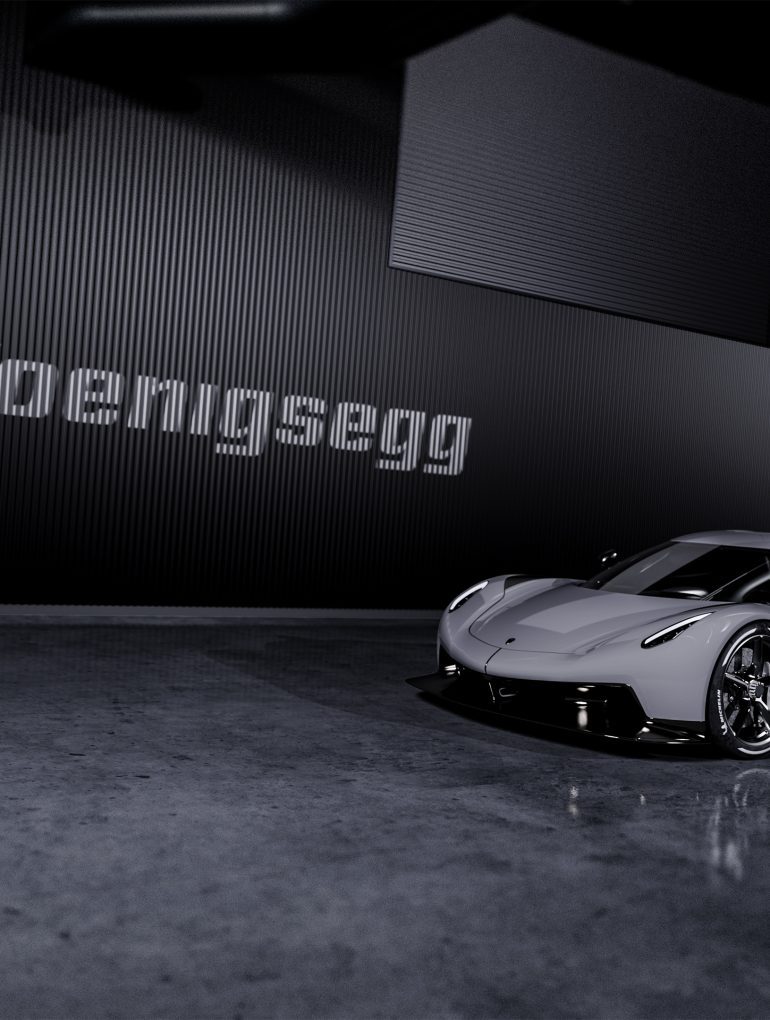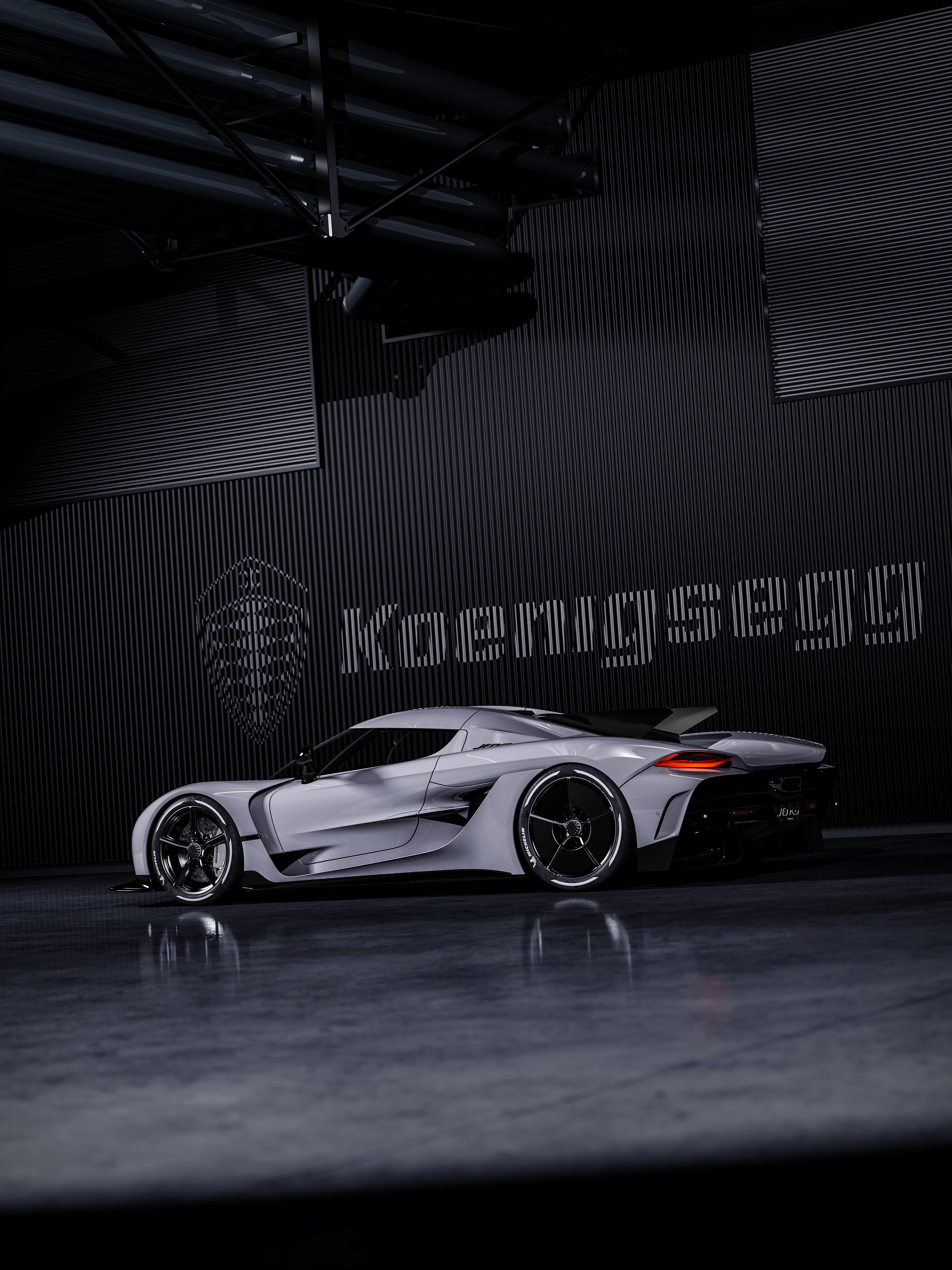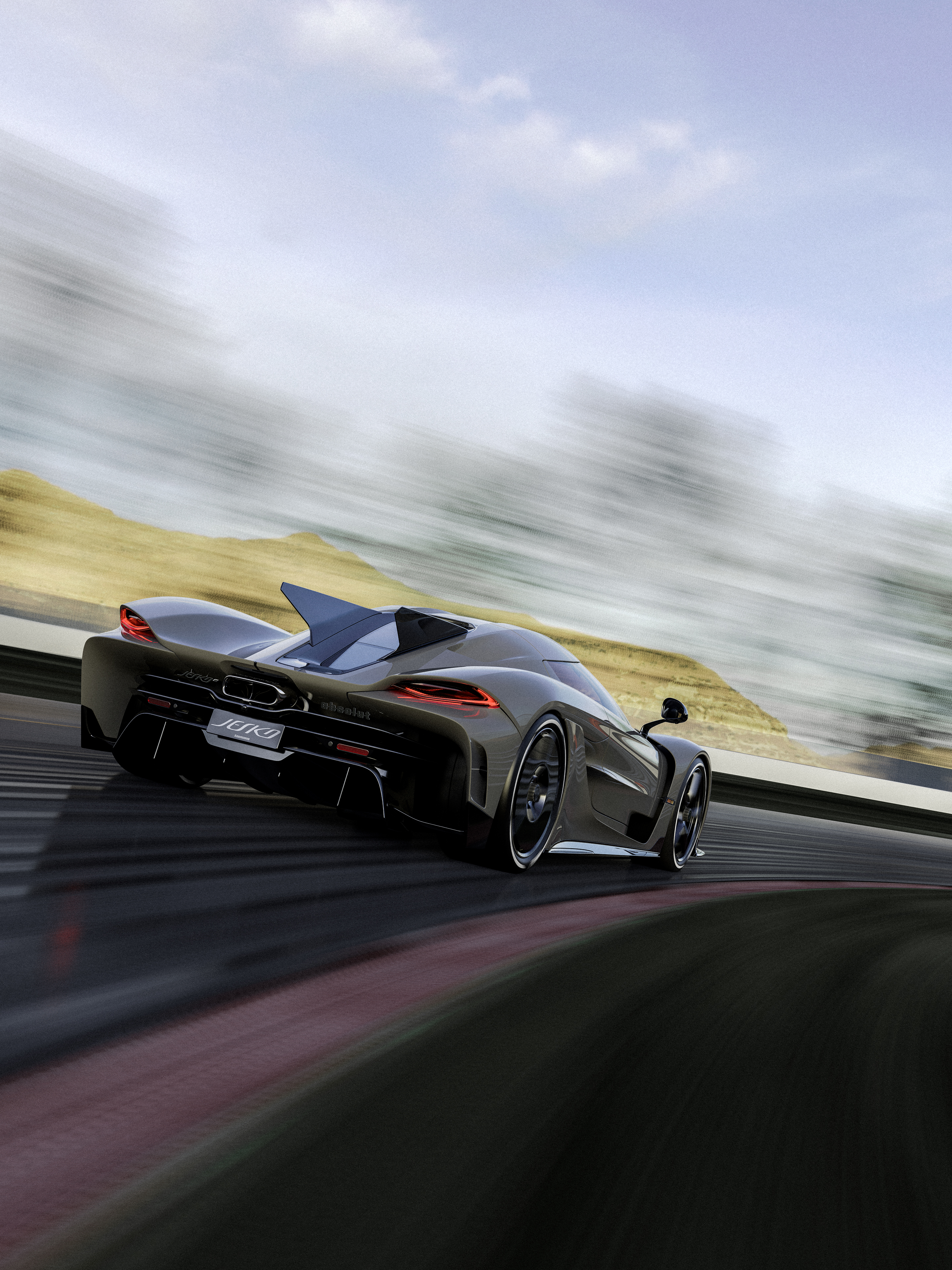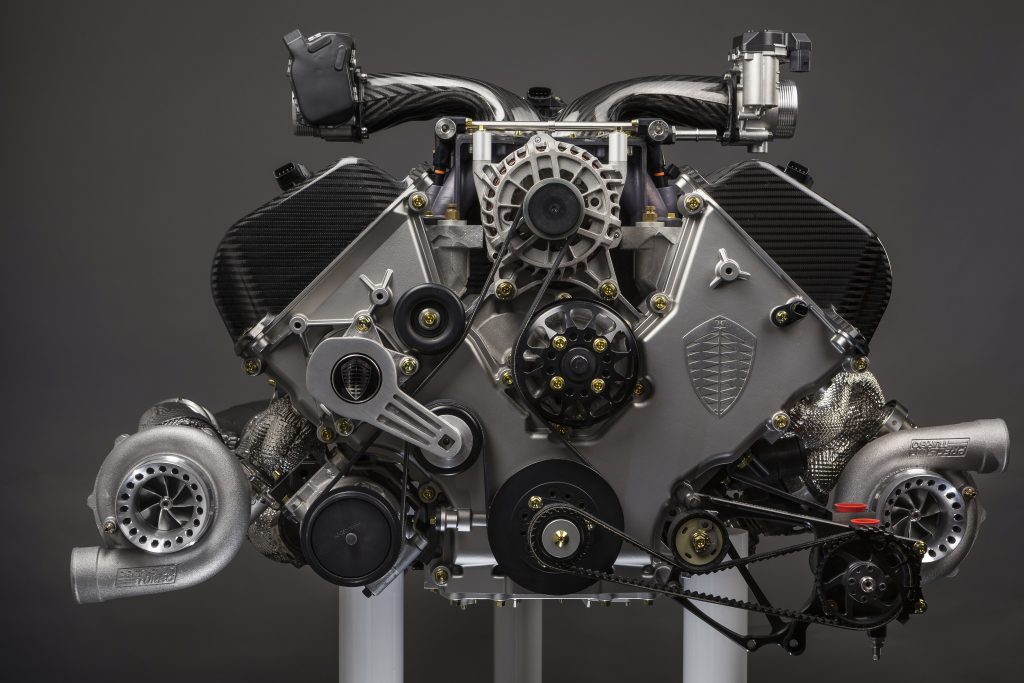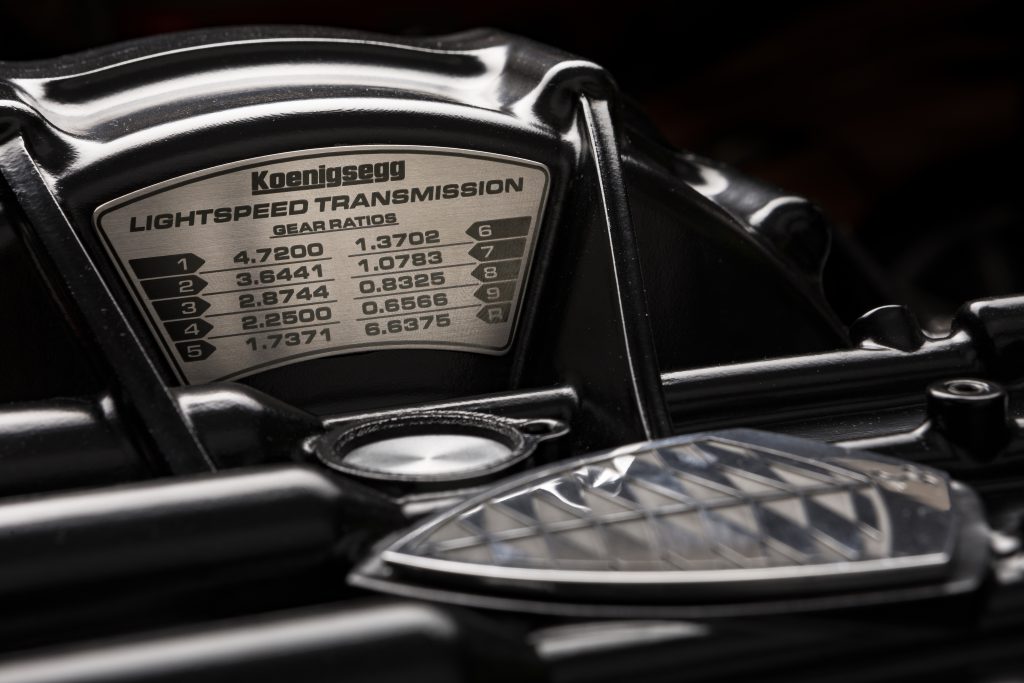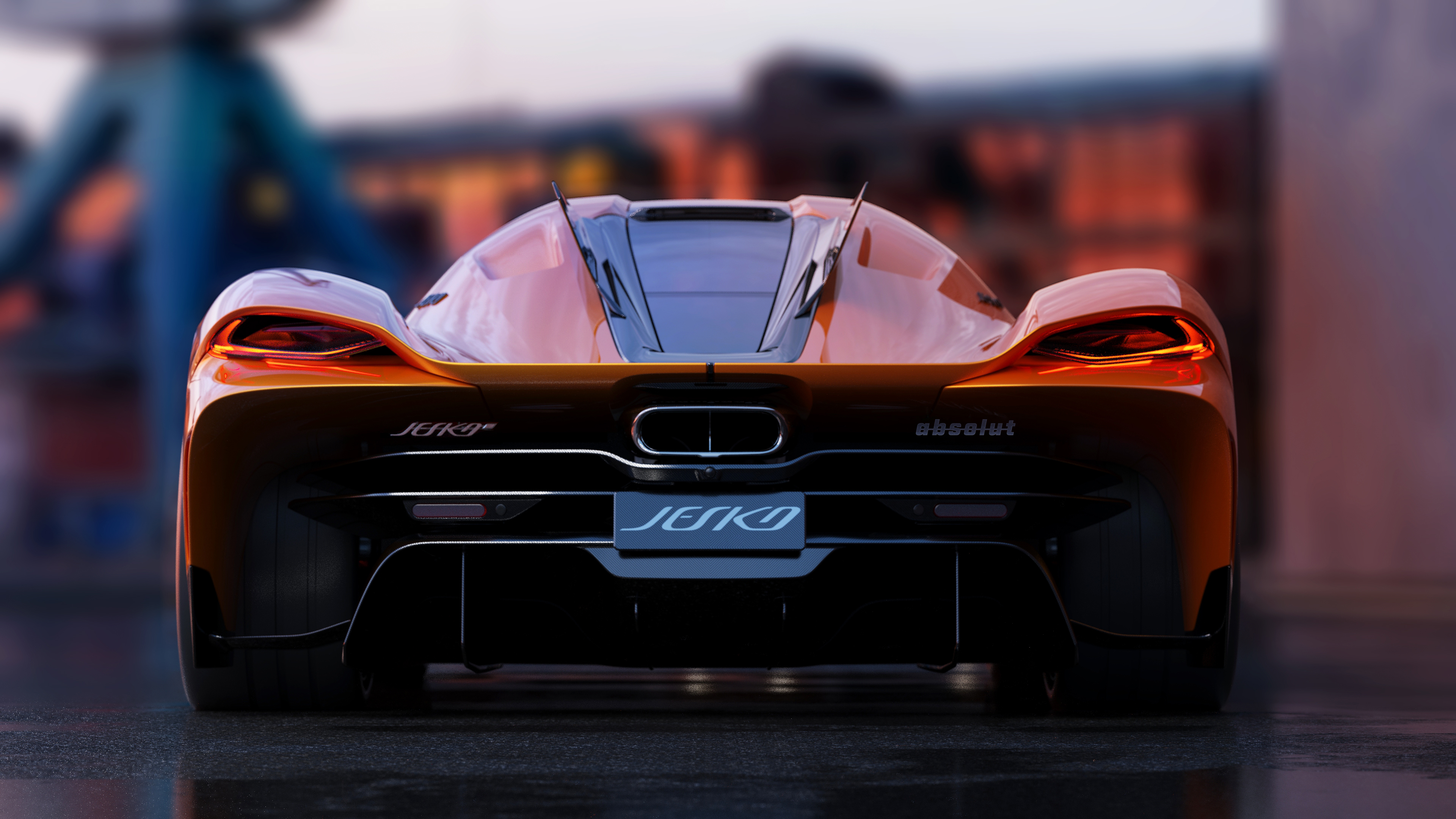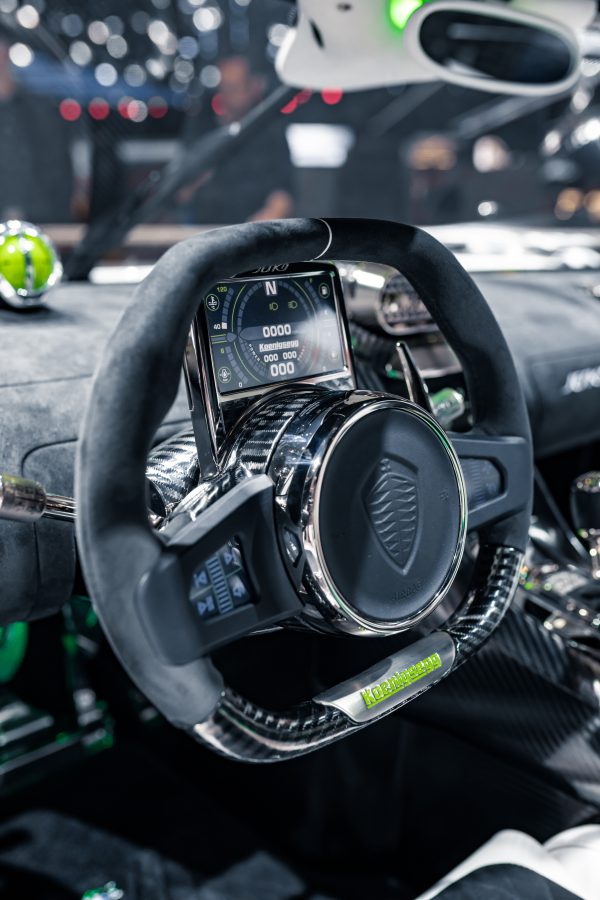While the centerpiece of the Koenigsegg Geneva press show was the Gemera, there was one other car that was presented that stuck true to Christian Von Koenigsegg’s idea of speed and precision: The Koenigsegg Jesko Absolut.
Koenigsegg has been pretty secretive about their Mission 500 car, a car destined to break 500 KPH (310 MPH). Now, however, it has been unveiled.
The Jesko Absolut is an aerodynamic exercise in just what is possible. With a frontal area of only 1.88 square meters presented to the air, an engine roaring out at least 1,600 HP, and a slippery shape that gives it a 0.278 coefficient of drag, this singular car is destined to be the fastest Koenigsegg ever.
After the Jesko was presented and finalized, the engineering and aerodynamics teams at Koenigsegg put their collective heads together and got to work. They spent over 3000 hours alone on fluid dynamic analysis, and another 5000 hours on design and engineering.
What results is a car that has dropped its total downforce and drag weight from 1,400 kg with the Jesko, to 150 kg with the Jesko Absolut. The most obvious difference is the removal of the wing, and the shaping of the vertical stabilizers outwards into a flying V.
The front splitter and side winglets from the Jesko are removed, and the cooling louvers for the front wheels and brakes have been completely replaced with more aerodynamically smooth ones.
The car is also 85mm longer, to give the tail more stability as the car goes faster and faster.
The Jesko Absolut’s engine is an updated version of the Jesko’s power unit. A flat plane crank, twin turbochargers, freevalve technology, and a crankshaft that weights only 12.5 kg make it one of the lightest engines Koenigsegg has developed.
The engine runs at 1,280 HP on 91 octane, but is designed for E85, where it develops 1,600 HP.
The power is routed through a 9-speed, specially designed transmission called the Koenigsegg LST, or Light Speed Transmission. It takes the idea of wet multi-clutch transmissions from the world of motorcycles, and implements it into a lightweight gearbox that can not only sequentially shift up and down, but shift to any gear as needed, due to the constant opening and closing of clutches as determined by the onboard computer. And all of that in a package that weights only 90 kg.
The computer is called UPOD, or Ultimate Power On Demand. The UPOD overcomes the preselection of gears used in DCT’s by instantly selecting and engaging the best gear ratio for the power demanded, be it a light pull away from a light, or a foot-to-the-floor top speed run. It will also automatically shift without having to decouple, preventing the jerky nature of a DCT.
In a sense, the best way to understand it is that it is a Continuously Variable Transmission, only with actual clutches instead of a torque converter.
One of the major benefits of all the lightweight materials and engineering obsession to make every single piece of the car useful if it is included is that the Jesko Absolut will be the first Koenigsegg since the One:1 to achieve a 1:1 power to weight ratio, as the car will weigh only 1,600 kg.
Inside, the car is swathed in the usual luxury that one expects of a hypercar, with leather, carbon fiber, alcantara, and the dihedral sychro-helix doors.
The Jesko Absolut, along with the Gemera, also use the latest evolution of Koenigsegg’s dash, the SmartCluster, where a TFT touchscreen moves with the wheel while keeping speed, revs, and vital information always in the eyeline of the driver. As well, instead of buttons on the left and right spokes of the wheel, the Jestko Aboslut has a SmartWheel, with two small touchscreens that can be configured to have the driver’s priority controls on hand.
No information as yet is available as to pricing or unit numbers, but with the Jesko starting at over $2 million, it for sure will be an expensive way to get to 500 KPH.


